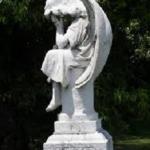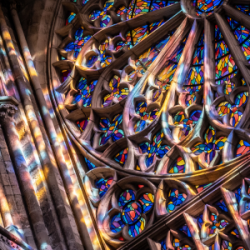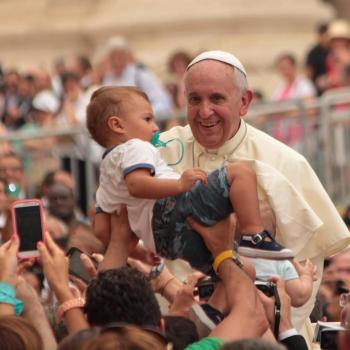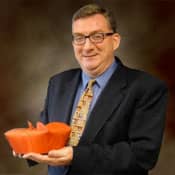 Today there are over four hundred Catholic women's religious communities in America. Each has a unique history, and each deserves its own book. But of all their founders, few had so unique a story as Mother Cornelia Connelly: socialite, minister's wife, mother, convert, nun. In 1846, she founded the Society of the Holy Child Jesus in England, now a worldwide community. "Few orders," one historian notes, "have come into existence under such unusual circumstances."
Today there are over four hundred Catholic women's religious communities in America. Each has a unique history, and each deserves its own book. But of all their founders, few had so unique a story as Mother Cornelia Connelly: socialite, minister's wife, mother, convert, nun. In 1846, she founded the Society of the Holy Child Jesus in England, now a worldwide community. "Few orders," one historian notes, "have come into existence under such unusual circumstances."
Born in 1809, Cornelia Augusta Peacock belonged to an affluent Philadelphia family. A beautiful young woman, she had many suitors. She met Pierce Connelly, a handsome, charming Episcopal priest, and was swept off her feet. Married in 1831, they had five children. Deeply in love, she devoted herself, as was expected of 19th- century women, to pleasing Pierce.
In 1835, he was assigned to a church in Mississippi, where he mingled freely in upper-class society. After four years, he gave it up to become a Catholic, with no job prospects in sight. To please him, but without any serious conviction, Cornelia also converted. Ultimately Connelly's attraction to Catholicism was based largely on his fascination with ornamentation and ritual. Cornelia's commitment, on the other hand, was slower but ultimately deeper.
Their conversion became front-page news. In Rome, Connelly orchestrated an elaborate reception ceremony. For two years, they lived in Rome as he mingled with the rich and famous. Cornelia began reading theology and Church history. One figure who made a big impression upon her was St. Ignatius Loyola, the founder of the Jesuits. Eventually, their money ran out and they had to go home.
Connelly taught at a Jesuit college in Grand Couteau, Louisiana, while Cornelia taught part-time at a school run by the Sacred Heart Sisters. This was an important experience. She acquired a spiritual director while she continued her spiritual reading. She later dated her true conversion to a retreat made in 1839. But once again, Connelly became restless for what he called "the great crowded world."
One morning, as they were walking back from church, Pierce Connelly told his wife that he wanted to become a priest. But he couldn't do this unless she entered the convent. Cornelia soon realized he wasn't asking but telling. His request shocked her, and broke her heart. They had just lost one child, and she was pregnant with another. And she loved Pierce deeply. But once again she went along with him.
Surprisingly, Connelly persuaded Vatican authorities to accept his plan. He would become a priest, and Cornelia a nun. In 1845, he was ordained amid great pageantry. But the situation was undeniably strange. They shared custody of the children, who had what one biographer calls a "dreadful parody of a home." Frank, the second youngest, apparently had a learning disability, and the parents' absence may have worsened it.
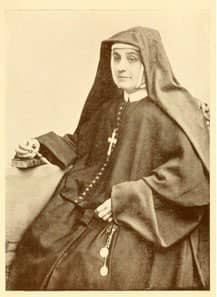 Soon Cornelia was asked to start a religious community in England. Working on the community rules under a painting of the infant Jesus, she named the new group for the Holy Child. It would be a teaching order in a country offering few educational opportunities for women, Catholic or Protestant. Mother Cornelia started off with two nuns in Derby, an industrial working-class town, where they took over the local parish school.
Soon Cornelia was asked to start a religious community in England. Working on the community rules under a painting of the infant Jesus, she named the new group for the Holy Child. It would be a teaching order in a country offering few educational opportunities for women, Catholic or Protestant. Mother Cornelia started off with two nuns in Derby, an industrial working-class town, where they took over the local parish school.
Many upper-class English Catholics had private chapels, and sometimes a personal chaplain. Pierce Connelly found a lucrative position with one, but he was still unhappy. After lobbying unsuccessfully for a promotion to cardinal, he sought fame as "founder" of Cornelia's community. But things had changed. Connelly tried to rewrite her community constitutions, but she fought him successfully. Amid many trials, she had discovered a vocation, and Connelly had no place there.
Always flighty and selfish, Pierce now showed his vindictive side. Still a priest, he sued to have his conjugal rights restored. The case was international news. The press depicted Cornelia as "a cold, cruel-hearted woman and an unnatural mother." But she refused to give in. The once-submissive wife was now a nun with an iron will who fought her ex-husband priest in court. And, amazingly, she won.
Not surprisingly, Connelly soon resumed his position in the Episcopal Church. For over thirty years, he wrote anti-Catholic tirades, many attacking his ex-wife. He also turned the children against her. It all took a toll on Cornelia, who rarely discussed the experience. In her diary, she wrote: "I must not dwell on deep sorrow, for I am without the power of remedy." Although some Catholics saw in her a scandal, she often used the scripture quote: "It must be that scandals come."
